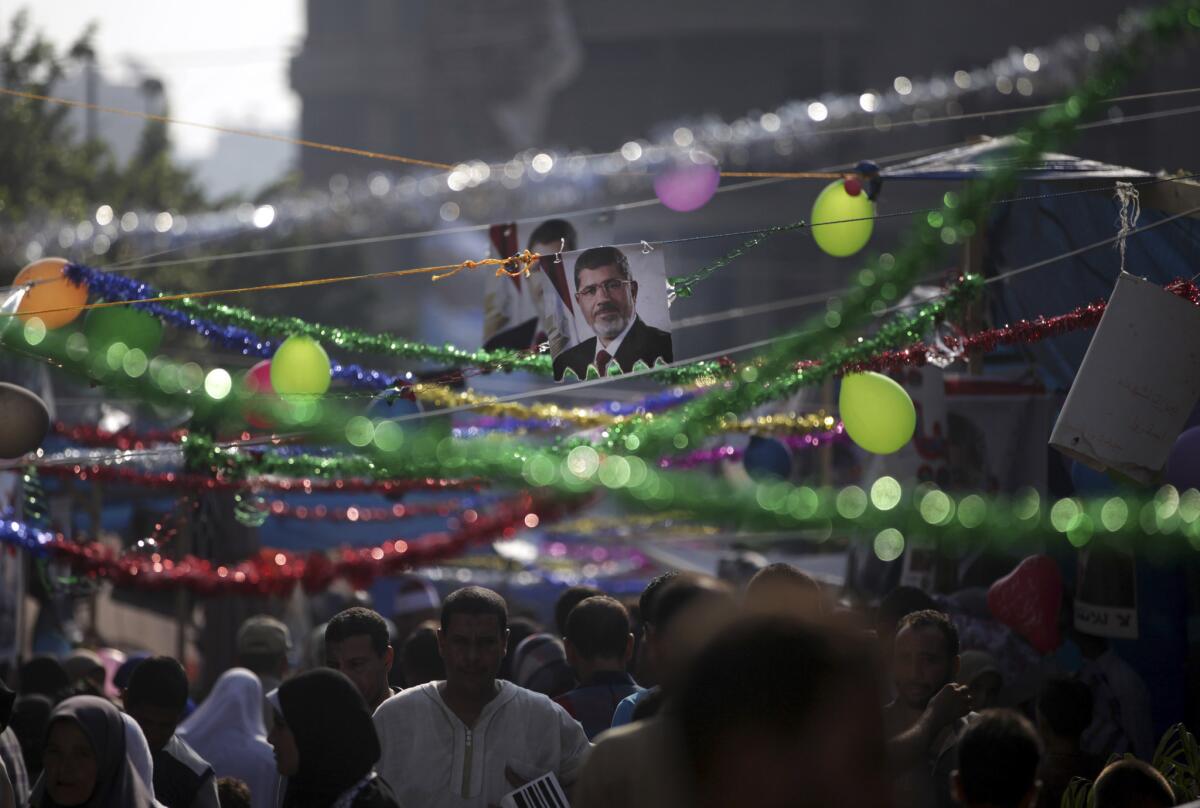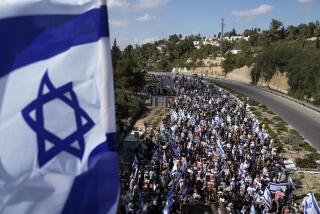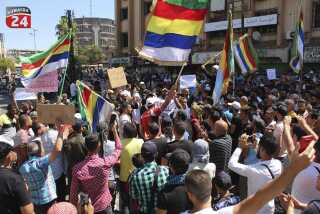Egyptians celebrate Eid with party hats and protests

CAIRO – Koran verses gave way to political epithets as Islamists rose from morning prayers on Thursday to celebrate the Eid feast before gathering banners and marching in another day of rallies against Egypt’s military-backed government.
Festivities marking the end of the Ramadan fasting month echoed with protests in a nation that has yet to restore calm after more than two years of deadly unrest. A holy day of anticipation, party hats and repose turned into one of anger, defiance and uncertainty.
Thousands of supporters of deposed president Mohamed Morsi and his Muslim Brotherhood movement refused to budge from their sit-in at Rabaa al Adawiya mosque, despite government warnings Wednesday that security forces were preparing to break up their monthlong protest. Both sides held firm amid reports of a faint possibility of a compromise.
A moderate Islamist party allied with Morsi, who was toppled in a coup last month, reportedly agreed to unconditional talks with the government in a bid to end the crisis. But the government has not begun negotiations with the Brotherhood, which has publicly refused to end the sit-in until Morsi is reinstated. That demand is a nonstarter for the government.
Negotiating a settlement has been further complicated by the imprisoning of most of the Brotherhood’s leadership. The government announced Wednesday that envoys from the U.S., Europe and Arab states had failed to broker a deal. But Egypt’s political parties continued to seek a solution even as Morsi remained in military custody.
More than 200 people have died in clashes in recent weeks. Enmity has deepened between Morsi’s supporters and millions of Egyptians who backed the coup to stop what they saw as attempts by the Brotherhood to infuse Islamic law into public life.
In a rare public appearance, Morsi wife’s, Naglaa Mahmoud, took the stage at the Rabaa and proclaimed that her husband “is coming back, God willing. . . We are victorious.”
She spoke as guards stood at barricades, checking for weapons and handing out bonbons to protesters amid blowing national flags and traditional Eid songs. The atmosphere around the mosque, which over the last 40 days has turned into a tent city, was a blend of celebration – children jumping on trampolines – and vows of political resolve.
“We are expecting violence will happen at any time,” said Rahiq Said, a high school senior. “But the harder they [police] beat us, the greater our numbers will be, the greater the number of our martyrs, the stronger our will.”
Adel Mohammed Sherif brought his wife and two daughters to the sit-in. Sherif returned 10 days ago from Saudi Arabia, where he teaches English, to join the protests.
“I’m here because it’s my national duty,” he said. “There can’t be any negotiations with the government. We have an elected president and discussions should be held with him only. Anything else is just pointless.”
He added: “We are not in Colombia so why has our president been abducted.”
ALSO:
Iran’s new president prompts renewed Israeli threats
Symbolic dates and Yemen strike drive fears of Al Qaeda attack
China fines baby formula companies $108 million in price-fixing casejeffrey.fleishman@latimes.com
More to Read
Sign up for Essential California
The most important California stories and recommendations in your inbox every morning.
You may occasionally receive promotional content from the Los Angeles Times.











